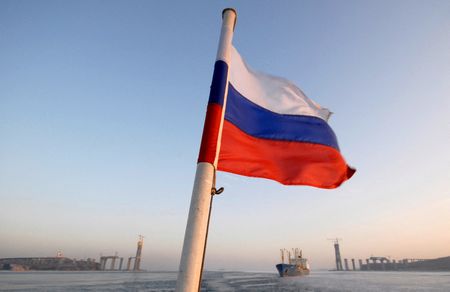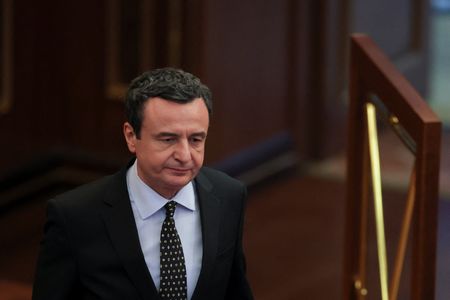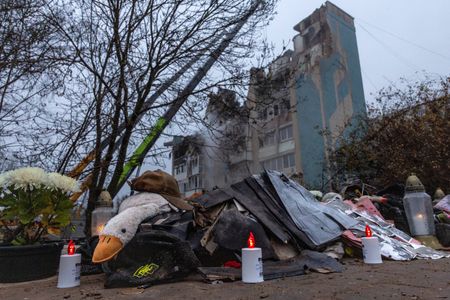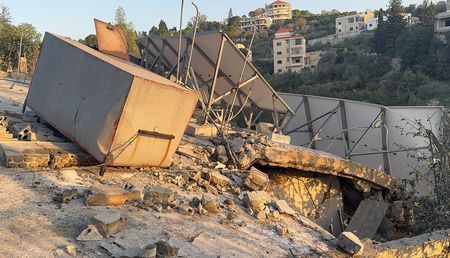By Elena Fabrichnaya and Alexander Marrow
MOSCOW (Reuters) – Russia is set to widen its power to retaliate for Western asset seizures with new legislation that could allow it to confiscate the frozen funds of foreign companies and investors, two sources familiar with the draft law told Reuters.
Around $300 billion of Russian financial assets, such as major currencies and government bonds, were frozen overseas shortly after Moscow despatched troops to Ukraine in February 2022, and Western countries have been debating how best to exploit those assets.
A draft bill outlining the procedure for Russia to confiscate foreign property in response to similar actions by other states with Russian assets was approved by the government’s legislative activity commission this week, paving the way for it to be debated in the State Duma, Russia’s lower house of parliament.
The bill, developed by the justice ministry, follows on from a decree signed by President Vladimir Putin in May 2024 concerning the U.S. property and securities Russia could identify as compensation for any losses sustained by the seizure of frozen Russian assets in the United States.
The new law would widen that out to all so-called unfriendly states, those that have imposed sanctions against Russia over its actions in Ukraine, the sources said.
Decisions would be enforced through lawsuits filed at arbitration court by state bodies such as the central bank, General Prosecutor’s office and government agencies. Defendants will be foreign states that have seized Russian assets.
A source familiar with discussions around the bill said type-C accounts, access to which is blocked unless Moscow grants a waiver, may end up being targeted.
That could spell trouble for the many foreign investors, including both individuals and major U.S. investment funds, with billions of dollars of funds trapped in those accounts.
Reuters reported in May last year that Russia may go after private investors’ cash as its ability to mete out like-for-like retaliation has been eroded by dwindling foreign investment.
(Reporting by Alexander Marrow in London and Elena Fabrichnaya in Moscow; Editing by Mark Potter)










